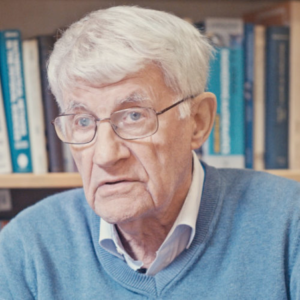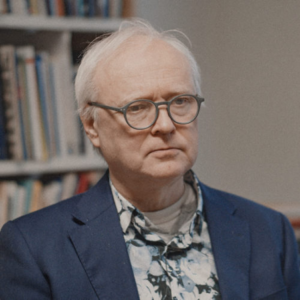Your cart is currently empty!

Can Quantum Mechanics Solve the Hard Problem of Consciousness?
- This event has passed.
June 6, 2021 @ 6:00 pm – 8:00 pm CEST

Watch the recording
Can Quantum Mechanics Solve the Hard Problem of Consciousness?
with Basil Hiley and Paavo Pylkkänen
Sunday June 6, 2021
9:00 PDT | 12:00 EDT | 17:00 BST | 18:00 CEST
2-hour session
If you are unable to attend the live session, the recording will be available.
The hard problem of consciousness is the problem of explaining how and why physical processes give rise to consciousness. Regardless of many attempts to solve the problem, there is still no commonly agreed solution. It is thus very likely that some radically new ideas are required if we are to make any progress. In this presentation we turn to quantum theory to find out whether it has anything to offer in our attempts to understand the place of mind and conscious experience in nature. In particular we will be focusing on the ontological interpretation of quantum theory proposed by Bohm and Hiley and its further development by Hiley and its philosophical interpretation by Pylkkanen.
The ontological interpretation makes the radical proposal that quantum reality includes a new type of potential energy which contains active information. This proposal, if correct, constitutes a major change in our notion of matter. We are used to having in physics only mechanical concepts, such as position, momentum and force. Our intuition that it is not possible to understand how and why physical processes can give rise to consciousness is partly the result of our assuming that physical processes (including neurophysiological processes) are always mechanical. If, however, we are willing to change our view of physical reality by allowing non-mechanical, organic and holistic concepts such as active information to play a fundamental role, this, we argue, makes it possible to understand the relationship between physical and mental processes in a new way. It might even be a step toward solving the hard problem.

Professor Basil Hiley, collaborator and colleague of David Bohm for over 30 years
Basil J. Hiley is a British quantum physicist and professor emeritus of the University of London. He received the Majorana Prize ‘Best Person in Physics’ in 2012. A long-time co-worker of David Bohm, Hiley is known for his work with Bohm on the implicate order and for his work on algebraic descriptions of quantum physics in terms of underlying symplectic and orthogonal Clifford algebras. Hiley co-authored the book The Undivided Universe with David Bohm, which is considered the main reference for Bohm’s interpretation of quantum theory.
The work of Bohm and Hiley has been characterized as primarily addressing the question ‘whether we can have an adequate conception of the reality of a quantum system, be this causal or be it stochastic or be it of any other nature’ and meeting the scientific challenge of providing a mathematical description of quantum systems that matches the idea of an implicate order.
In 1961 Hiley was appointed assistant lecturer at Birkbeck College, where Bohm had taken the chair of Theoretical Physics shortly before. Hiley wanted to investigate how physics could be based on a notion of process, and he found that David Bohm held similar ideas. He reports that during the seminars he held together with Roger Penrose he was particularly fascinated by John Wheeler’s ‘sum over three geometries’ ideas that he was using to quantize gravity.
Hiley worked with David Bohm for many years on fundamental problems of theoretical physics. Initially Bohm’s model of 1952 did not feature in their discussions; this changed when Hiley asked himself whether the ‘Einstein-Schrödinger equation,’ as Wheeler called it, might be found by studying the full implications of that model. They worked together closely for three decades. Together they wrote many publications, including the book The Undivided Universe: An Ontological Interpretation of Quantum Theory, published 1993, which is now considered the major reference for Bohm’s interpretation of quantum theory.
In 1995, Basil Hiley was appointed to the chair in physics at Birkbeck College at the University of London. He was awarded the 2012 Majorana Prize in the category The Best Person in Physics for the algebraic approach to quantum mechanics and furthermore in recognition of ‘his paramount importance as natural philosopher, his critical and open minded attitude towards the role of science in contemporary culture.’

Paavo Pylkkänen, PhD, Philosopher of Mind, Helsinki University, Finland
Paavo is Senior Lecturer in Theoretical Philosophy and Director of the Bachelor’s Program in Philosophy at the University of Helsinki. He is also Associate Professor of Theoretical Philosophy (currently on leave) at the Department of Cognitive Neuroscience and Philosophy, University of Skövde, where he initiated a Consciousness Studies Program.
His main research areas are philosophy of mind, philosophy of physics and their intersection. The central problem in philosophy of mind is how to understand the place of mind—and especially conscious experience—in the physical world. Pylkkänen has explored whether this problem can be approached in a new way in the framework of the new holistic and dynamic worldview that is emerging from quantum theory and relativity. He has in particular been inspired by the physicists David Bohm and Basil Hiley’s interpretation of quantum theory and has collaborated with both of them.
In his 2007 book Mind, Matter and the Implicate Order (Springer) he proposed that Bohmian notions such as active information and implicate order provide new ways of approaching key problems in philosophy of mind, such as mental causation and time consciousness. The overall aim of his research is to develop a scientific metaphysics. Paavo Pylkkänen has been a visiting researcher in Stanford University, Oxford University, London University, Charles University Prague and Gothenburg University and is a member of the Academy of Finland Center of Excellence in the Philosophy of Social Sciences (TINT).
